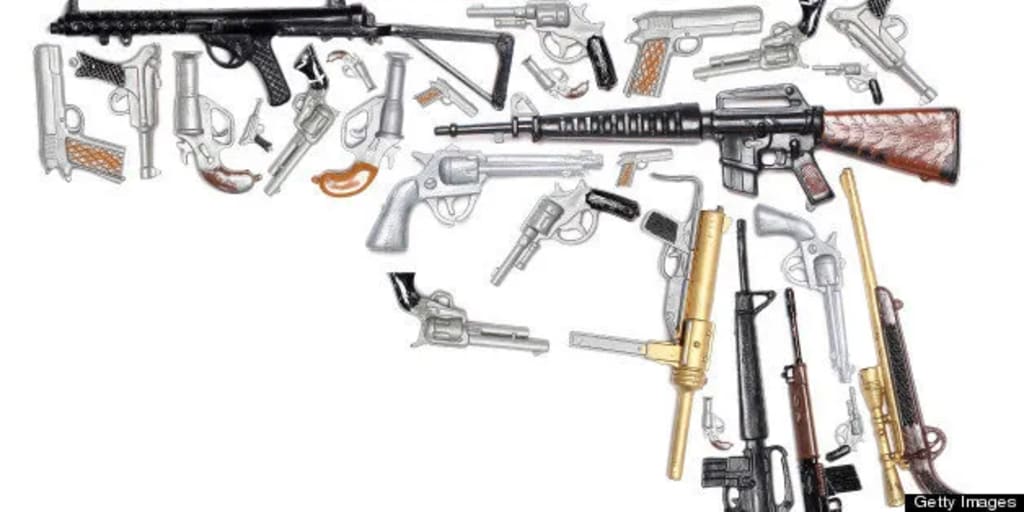
There are a wide range of weapons in the world, from small arms to nuclear missiles. Some of these weapons are considered the most dangerous because of their destructive power, range, or potential impact on human life and the environment. In this essay, we will explore some of the world's most dangerous weapons, their capabilities, and the consequences of their use.
Nuclear Weapons
Nuclear weapons are the most destructive weapons ever created by humans. They use the power of the atom to create massive explosions, release radioactive fallout, and cause widespread destruction. The first nuclear bomb was detonated in 1945 in Hiroshima, Japan, killing approximately 140,000 people. Since then, many countries have developed their own nuclear weapons programs, with the United States and Russia holding the largest arsenals.
The use of nuclear weapons would have catastrophic consequences, not just for the targeted area but for the entire world. A nuclear blast would cause immediate devastation, with the blast wave and heat causing widespread destruction of buildings and infrastructure. The radiation released from the explosion would contaminate the air, water, and soil, causing long-term health problems for survivors and damaging the environment. Additionally, a nuclear war could lead to a "nuclear winter," where the smoke and dust from the explosions block out the sun, causing a global cooling effect that could lead to crop failures and mass starvation.
Biological Weapons
Biological weapons are weapons that use living organisms or toxins to cause harm. These weapons can take many forms, from anthrax spores to botulinum toxin. They can be delivered through the air, water, or food supply, making them difficult to detect and defend against.
The use of biological weapons could have devastating consequences, with the potential to kill large numbers of people and cause widespread panic. The 2001 anthrax attacks in the United States, for example, killed five people and infected 17 others, causing widespread fear and disruption. In addition to the immediate harm caused by the attacks, the fear of future attacks and the need to invest in countermeasures have led to significant economic costs.
Chemical Weapons
Chemical weapons are weapons that use chemicals to cause harm. These weapons can take many forms, from nerve agents like sarin to blister agents like mustard gas. They can be delivered through the air, water, or by direct contact, making them difficult to defend against.
The use of chemical weapons can cause immediate harm, with symptoms including convulsions, paralysis, and respiratory failure. The long-term effects can include blindness, chronic respiratory problems, and increased risk of cancer. Chemical weapons were used extensively during World War I and have been used more recently in conflicts in Syria and Iraq.
Autonomous Weapons
Autonomous weapons are weapons that can operate without human intervention. These weapons can take many forms, from drones to robotic tanks. They can be programmed to search for and engage targets, making them potentially lethal even without direct human control.
The use of autonomous weapons raises significant ethical concerns, as their ability to operate without human oversight raises the risk of unintended harm. The lack of human judgment and decision-making can also lead to errors in targeting, potentially causing harm to innocent civilians.
Cyber Weapons
Cyber weapons are weapons that use computer code to cause harm. These weapons can take many forms, from viruses to hacking tools. They can be used to disrupt infrastructure, steal information, or even cause physical harm.
The use of cyber weapons can cause significant harm, with the potential to disrupt critical infrastructure, compromise sensitive information, and cause economic damage. Cyber attacks can also be difficult to attribute, making it challenging to respond effectively.
In conclusion, the world's most dangerous weapons have the potential to cause significant harm to human life and the environment. Their use must be avoided at all costs,and efforts must be made to reduce their proliferation and eliminate them altogether. The consequences of their use can be catastrophic, with far-reaching effects on the global community. Therefore, it is essential to ensure that international regulations and treaties are in place to prevent their development and use.
The United Nations has taken steps to address the issue of dangerous weapons, with treaties like the Treaty on the Non-Proliferation of Nuclear Weapons and the Chemical Weapons Convention. However, there are still many challenges in enforcing these treaties and preventing the spread of dangerous weapons. The proliferation of these weapons is also facilitated by the black market, where illegal trade in weapons and components occurs, making it more difficult to track and regulate.
Efforts must also be made to prevent the development of new types of dangerous weapons, such as autonomous weapons and cyber weapons. International discussions and agreements must be made to ensure that these weapons are developed and used responsibly, with human oversight and ethical considerations.
In addition to preventing the use of dangerous weapons, efforts must be made to promote disarmament and non-proliferation. This includes reducing stockpiles of nuclear weapons and ensuring that countries with nuclear programs are using them for peaceful purposes. It also involves addressing the root causes of conflicts and promoting diplomatic solutions to disputes.
In conclusion, the world's most dangerous weapons pose a significant threat to global security and stability. Their use must be avoided at all costs, and efforts must be made to reduce their proliferation and eliminate them altogether. This requires a global effort, with countries working together to promote disarmament, non-proliferation, and peace. While the challenges are significant, it is essential that we continue to make progress towards a world free from the threat of dangerous weapons.
About the Creator
johnsonho
I am a content writer with a passion for personal health management.
I focus on writing articles, blog posts, and social media content for whoever wants to live a healthy lifestyle.





Comments
There are no comments for this story
Be the first to respond and start the conversation.